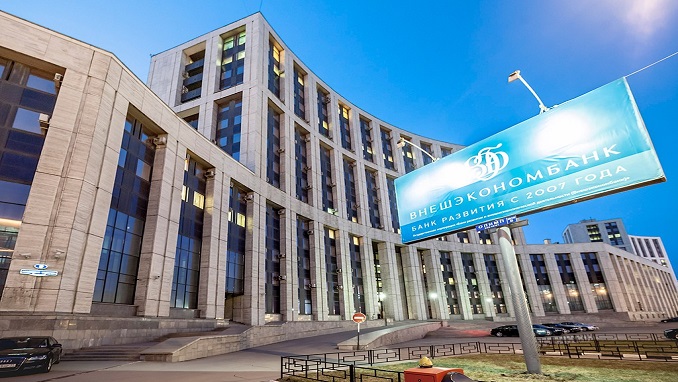In an interview with The Banker, Yuri Korsun, deputy chairman of Russian development institution VEB.RF, talked about its project finance factory, the impact of sanctions and the bank’s role in stimulating green finance in Russia.
According to Korsun, VEB.RF‘s main focus is to support investments in the Russian economy through private-public partnerships in three main project finance areas: infrastructure, such as roads, ports and airports; industry, mainly export-oriented and higher value products; and the urban economy, including public transportation, clean water and hospitals.
“Almost every transaction is done as a syndicate with commercial banks. Our products utilise government support to attract financing. Loan structures are similar to other development banks, where only part of the money comes from VEB, and sometimes we even take subordinated positions, such as longer tenors or junior tranches. This allows commercial banks to join in because we help to split the risk and find the proper risk balance,” Korsun told The Banker.
Together with the Ministry of Economic Development and the Ministry of Finance, VEB has created a ‘project finance factory’, which addresses the main issue facing commercial banks: the tenor in roubles. Because Russia doesn’t have a proper floating exchange rate, banks usually quote a fixed rate, which becomes prohibitively expensive for longer tenors because all the risks are loaded into the calculation.
“This programme helps commercial banks remove that risk. Banks, together with VEB, quote a floating rate for a client. If the rate goes down, then everything is in favour of the client’s project; if it goes up, then it is covered by the government subsidy. Effectively, it is a cap on the interest rate for both the project and the banks. The programme also limits VEB’s participation to 10% to 40% of the overall amount, so we need to bring in commercial banks to finance a project,” Korsun said.
In the past year, VEB approved 10 project finance transactions worth about €10bn, where 20% comes from investors, about 20% comes from us and the rest [60%] comes from commercial banks. As such, the company is multiplying the impact of its participation by four.
Korsun also addressed the issue of operating under US-imposed sanctions.
“VEB, like other Russia banks, is operating under sectorial sanctions, which means we can’t attract money from international investors for longer than 28 days. However, there are exceptions to the sanctions, such as trade finance. If it is an export credit agency-covered transaction, then it is excluded from the sanction lists,” he said.
“Today, virtually all of VEB’s transactions are done with Russian banks, but that is not due to sanctions. For international banks, it is almost impossible to take long-term risk in Russia because of their risk management structures and country limits. Theoretically they can join a syndicate with us, but project finance usually requires at least seven- to 10-year tenors, or longer for infrastructure projects. This is not an acceptable level of risk for them,” Korsun tells The Banker.
Regarding the prospect of green financing, Korsun believes that VEB will play a vital role in moving Russia towards compliance with the [UN] Sustainable Development Goals, as well as environmental, social and governance principles.
“However, the definition of ‘green’ is not yet clear. Many Russian companies borrowing internationally report that the conversation with potential investors always begins with their sustainability agenda. But the framework is not yet agreed and there is no universal way of attaining a green stamp. It is a methodological debate, and we are discussing this and international standards with other development institutions,” Korsun noted.
While this debate is ongoing, VEB is already talking to the government about different support measures to encourage investment in environmentally friendly and sustainable projects. These could be disincentivising measures, such as fines, or incentivising, with capital access or lower cost of funding.
“We have formed a working group from different businesses and departments within VEB that will start tackling this issue. For example, we are looking at the success of the ‘project finance factory’ and trying to think of similar ideas to stimulate investment in the transition to a green economy,” Korsun said in the inteview. “Funding is shifting to more sustainable industries and if a company is not compliant with this approach, then it has already lost a chunk of the investment base. The new investor is the millennial, who is more focused on supporting industries that are embodying the idea of sustainability versus those that will be penalised in future. Green has stopped being a political declaration and is now an economic issue.”












